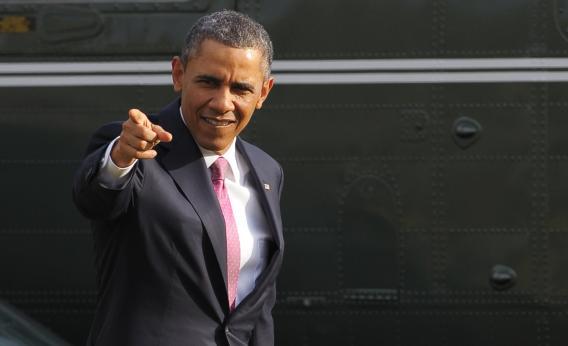At first the concept seemed thrilling: Get enough people on the Internet to sign on to a petition—any petition—and the White House would respond. But for activists, the shine of President Obama’s “We the People” initiative faded as substantive WhiteHouse.gov petitions on topics like drug policy met with status-quo responses and gave way to jokey proposals like the one to build a Death Star. Defenders of the democracy-2.0 initiative maintained that it was valuable, if nothing else, as a way to show that government officials could have a sense of humor. Still, a rash of outlandish proposals meeting the 25,000-signature threshold for a response led one White House staffer to admit wondering, “My God, what have we done?” In January, the White House raised the threshold to 100,000 in an effort to filter out some of the noise. The risk was that this would have the perverse effect of stifling serious but less-sexy petitions while letting through the most viral of the attention-grabbers. But so far that doesn’t seem to be the case. One of the first petitions to meet the new benchmark was an earnest plea to overturn an unpopular but under-the-radar decision by the Library of Congress that appeared to make it illegal for Americans to unlock their own cellphones so they could use them on other carriers. Skeptics pointed out that the White House lacked the authority to change the rule, and that action from Congress and the FCC seemed unlikely. Even after the petition passed the 100,000-signature mark and drew a genuinely supportive response from a senior White House adviser, the reaction in many quarters of the Internet was dismissive. “Petitions don’t have any effect other than getting a response that’s designed to get you to stop complaining from a false sense of achievement,” sniped one of the most popular comments on Hacker News. But today The Hill is reporting that several prominent members of Congress, including Senate Judiciary Committee Chairman Patrick Leahy, are aiming to pass a law that would do just what the petition asked. Sen. Ron Wyden of Oregon, a leader on technology and intellectual property issues, has already introduced a bill, called the Wireless Device Independence Act. Another Democratic senator is working on her own version. And the support appears to be bipartisan: Republican Jason Chaffetz of Utah tweets that he’s working on a bill in the House, and Republican Darrell Issa of California said he would be “very, very supportive.” None of this means such legislation will actually pass. The forces arrayed against any reform of copyright laws are powerful. And of course cellphone unlocking is hardly the most consequential issue facing the United States today. What it does mean is that at least one consumer-rights issue that was considered a lost cause by most is now very much in play on Capitol Hill. And it’s doubtful that would have happened if a 27-year-old San Francisco entrepreneur named Sina Khanifar hadn’t ignored the naysayers and cynics and posted a petition on WhiteHouse.gov. Credit is due to all involved.
Maybe WhiteHouse.gov Petitions Aren’t Useless After All

Here’s looking at you, cellphone unlocking activists.
Photo by Mandel Ngan/AFP/Getty Images
Advertisement